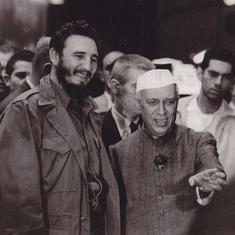At a packed press conference on Monday, a Supreme Court panel headed by former chief justice Rajendra Mal Lodha released its report on bringing transparency to the administration of Indian cricket. The voluminous report is replete with flowery anecdotes and tonnes of annexures that serve as good reading material on the problems faced by the Board of Control for Cricket in India. And while the document dwells on the urgent need for reforms in the world’s richest sports body, it is likely that most of the committee’s recommendations will be put in cold storage.
On January 22, the Supreme Court appointed a committee led by justice Lodha and comprising justices Ashok Bhan and RV Raveendran to look into issues arising out of a spot-fixing and betting scandal during the 2013 edition of the Indian Premier League. It was asked to decide on the quantum of punishment for franchise officials Raj Kundra, Gurunath Meiyappan and the teams they were part of – Rajasthan Royals and Chennai Super Kings – as well to ascertain whether Sundar Raman, the IPL’s chief operating officer at the time, was guilty of malpractice.
On July 14, the committee recommended life bans for Kundra and Meiyappan and the suspension of their franchises for two years. On Monday, the Lodha panel exonerated Sundar Raman, saying it could not find any substantial and clinching evidence of his involvement in betting or spot-fixing.
What's new?
The Lodha panel had also been tasked with submitting recommendations for cleaning up the affairs of the BCCI to make its more transparent and accountable. These specifically involved suitable amendments to the BCCI memorandum of association and rules and regulations to streamline the process of elections, framing rules related to qualifications and disqualifications of office-bearers, and processes to prevent conflict of interest situations.
After consulting various parties including late BCCI chief Jagmohan Dalmiya, former cricketers Rahul Dravid and Kirti Azad, and even cricket historian Ramachandra Guha, the committee revealed its recommendations on Monday.
These include:
* Limiting the number of terms an office-bearer can hold to three (including two consecutive terms)
* Imposing a retirement age of 70 on key office-bearers
* Including the BCCI within the ambit of the Right To Information Act
* Debarring those accused of corruption or those holding government office from assuming positions within the BCCI
* Forming a players association which would have a role in the governing council of the cricketing body
* Roping in a professional Chief Executive Officer to manage cricketing affairs
* Having only one cricket association per state as an affiliate of BCCI
* Legalising sports betting and introducing a separate law to deal with the menace of sporting fraud
It is undeniable that these suggestions are well-intentioned and meant to improve the administration of the game. However, most of them are not new. The suggestions to include sports bodies within the RTI Act, imposing conditions for office-bearers and limiting their terms, and having professionals or sportspersons in governing councils of sporting associations are all contained in the draft National Sports Development Bill of 2013.
Further, the United Progress Alliance government had already drafted a law to prevent sporting fraud, which is currently pending approval from Parliament. The recommendation to legalise sports betting is a wise one which I have heartily endorsed previously. However, there have been several recommendations in the past by jurists, journalists and policy experts (including by Justice Mukul Mudgal in his report, a precursor to the Lodha committee’s report) which have fallen on deaf ears.
Why only BCCI?
Additionally, why are these suggestions being foisted only on the BCCI and not on other sporting bodies also mired in similar controversies? This is a legitimate question that deserves to be raised by the BCCI while refusing to accept most of the recommendations.
Again, since the apex court had merely asked the Lodha committee to submit its recommendations (presumably of a non-binding nature) to the BCCI, it is unlikely that BCCI would oblige by complying with its diktats. The Supreme Court would also be wary of breaching the principle of separation of powers time and again by directing the BCCI to compulsorily incorporate these recommendations.
Thus, while the Lodha Committee report has some literary value, most of its suggestions are likely to be put in cold storage. Parliament passing a law on the lines of the draft National Sports Development Bill is the only hope to end the mess surrounding most sporting federations. But its passage remains a distant dream and is in no political party’s priority list, given the hopeless parliamentary logjam and deep involvement of many parliamentarians, cutting across party lines, in sports federations.
This is something that cricket lovers will have to come to terms with, once the media frenzy hailing the "clean-up of BCCI" ends.










